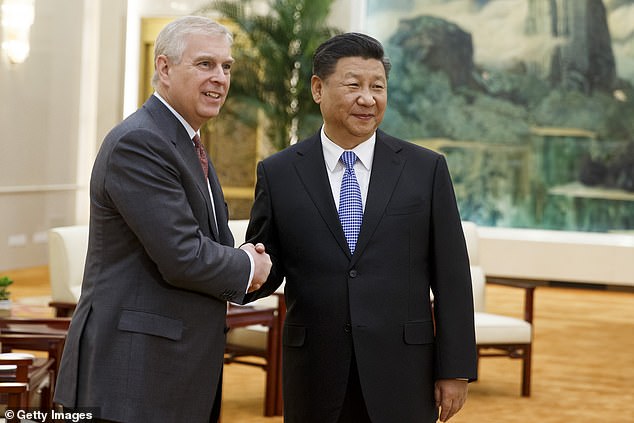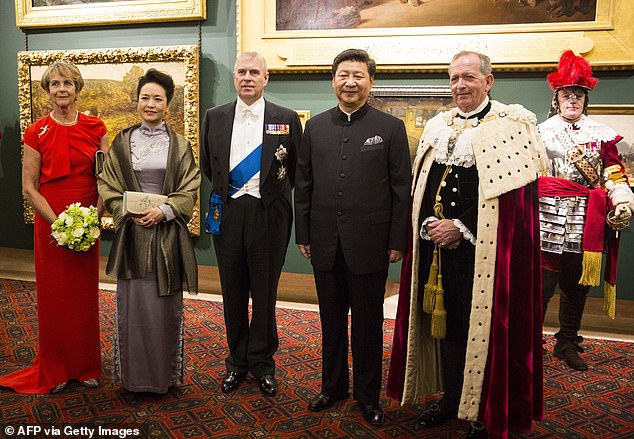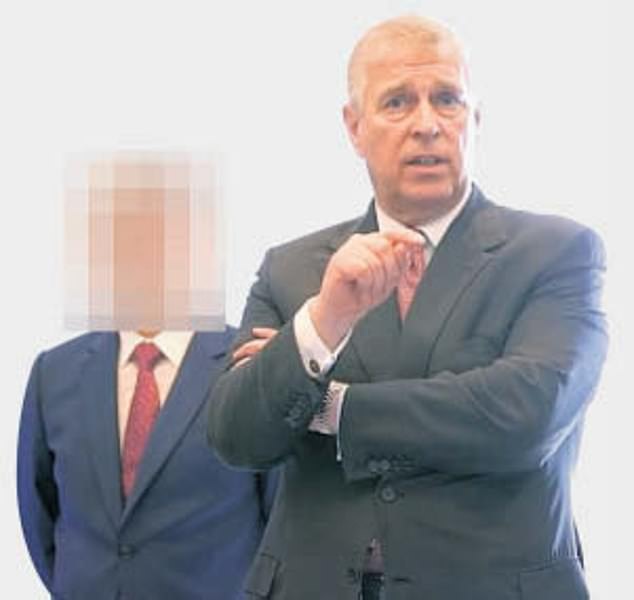At first, I tried to dismiss it as paranoia. The car in my rearview mirror had been there for 20 minutes, attentively following my every move.
A black sedan, powerful, elegant and intimidating, it seemed incongruous that it had any interest in me: a journalist in his 20s driving a tired-looking VW Golf. But when I turned left, the car followed me. When I turned right, it did the same.
Maybe it was a coincidence, but a growing anxiety told me otherwise. So at the next roundabout I made two complete turns.
I turned, and turned again, and turning my eyes to the mirror, there remained my pursuers (two men I could barely make out in the gathering darkness of a cloudy day) clinging to me like glue. My heart raced, afraid of what I had gotten myself into.
I was driving to see a trusted source who had informed me about the alleged Chinese spy and confidant of Prince Andrew, now banned from the UK.
The source told how the man, a little-known businessman at the time, had infiltrated the British establishment by courting senior politicians and courtiers of the Royal Family. The details were as surprising as they were sinister.
I had been quietly investigating the case, discussing it only with my editor and source. Days before the car chase, I received a worrying call from an unknown number.
A gruff voice told me that he was representing the Chinese businessman and that his company had “learned” that he was investigating his client and his alleged ties to the Chinese Communist Party.
The Duke of York with the alleged Chinese spy who has now been banned from entering the UK

Prince Andrew with Xi Jinping at the Great Hall of the People in Beijing in May 2018
Stunned, I couldn’t understand how he knew about my research. He insisted his client was a respectable figure dedicated to improving trade between the UK and China.
He tried to make some jokes, but his friendly demeanor did nothing to appease me. If anything, panic set in. He asked me to send him any questions I had, but insisted that any suggestion that his client was a Beijing agent was slander.
His words echoed in my ears as that menacing black sedan remained stubbornly in my rearview mirror. Surely these two thugs were Chinese agents? I gently stepped on the accelerator.
I felt like I had stumbled upon a John le Carré novel. Should I call the police? My editor? A thousand thoughts ran through my head, including performing a screeching Hollywood-style U-turn.
If I continued, it would lead them to my source, which might be what they were expecting.
As I approached a traffic light, the green turned amber: it was my chance to escape. I jumped through the light just as it turned red. The hall was too far back to do the same, so I breathed a sigh of relief when he disappeared from sight.
I suspect the persecution was little more than an intimidation tactic. If the Chinese really wanted to spy on me without my knowledge, they could easily do it. It was about warning me to back off.
As Britain began to rethink the wisdom of former Prime Minister David Cameron’s “golden era” of Anglo-Chinese relations, I spent months investigating the network of suspected Chinese spies and influential figures in the British establishment.

Prince Andrew at the Guildhall in central London with Xi Jinping and the Mayor of London before attending a banquet on October 21, 2015.
But the incident left me shaken and wondering if, for my personal safety, it was worth it.
It now appears that China has dedicated years and enormous resources to inserting its agents into the heart of our way of life.
It is no wonder that he seeks to muzzle journalists who attempt to expose his dark arts, although it must be said that I write this anonymously due to an absurd ruling by a UK court preventing the publication of my name in relation to this man or material that could identify him.
But my frustration with the judiciary cannot match the alarm I felt in the CCP’s crosshairs. I was certainly not the first to experience China’s bullying tactics aimed at intimidating the free press, and I am sure I will not be the last.

